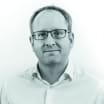Now’s the time for McLaren to show us what it can really do
With new owners and a new family to lean on, McLaren now has the opportunity to grow and show the world what it’s capable of

Along with the many pros of doing so, there are also many benefits to not listing your car company on the financial markets – the most significant being that you have no requirement to air your financial laundry in public every three months, for everyone to tell you what you are doing wrong. It’s one of the reasons why, I believe, that Aston Martin is constantly given the last rites and everyone thinks bankruptcy number eight is just around the corner, yet McLaren’s financial performances are given an inquisitive shrug and a “er, yeah another loss. But still, not as bad as Aston, eh?” But McLaren has been walking a greasy financial tightrope for a long time now and the announcement that its debt and financial struggles have been signed over to CYVN, the Abu Dhabi investment fund, from the Bahrain Sovereign wealth fund, is a very welcome early Christmas gift at Woking.
CYVN will, once the ink has been applied to the contract, take full control of McLaren Automotive and also gain a non-controlling stake in McLaren Racing, under which comes the newly crowned 2024 FIA Formula 1 Constructors World Champions. It means CYVN will also be responsible for the funding of McLaren’s ambitions beyond keeping the lights on in the headquarters it now rents having been forced to sell the McLaren Technology Centre (MTC) for £170m to raise some much needed cash in 2021.
> McLaren's future secured as Abu Dhabi buyer confirms sale
What McLaren has achieved since the pandemic obliterated its business plans is highly commendable. It delivered the exhilarating 620R, the wind-in-your-hair (and face) Elva, eventually got the Artura to market in 2022 and thoroughly updated it in 2024 to make it better than it already was. It also updated the 720S to such a high level of fidelity they called it the 750S. There has also been the slightly unhinged but oh-so-desirable Solus with its pulsating Judd V10. And they added an ‘S’ to the GT nameplate. Not bad for a company on the breadline.
The stabilisation of the company has come from the leadership of Michael Leiters, the ex-Porsche and more recently Ferrari technical director who took over as CEO in July 2022. Leiters paused the Artura programme following its disastrous launch which took place on the eve of his arrival and set in place a plan to right the wrongs that afflicted the company’s first series production hybrid supercar. He has also overseen an overhaul of the MTC production facility to get on top of McLaren’s woeful quality and reliability issues, and brought a calming influence to the organisation allowing it to deliver the best it can with what little it has, rather than try and be something it can’t afford to be. That this has resulted in two out of three of its series production cars being class leaders is a significant achievement that too often goes unrecognised. There is also the small matter of the W1’s announcement, the P1’s replacement and technical masterpiece you’d expect from a company that created the F1.
What will CYVN bring to the table aside from financial stability and skin in the automotive game, unlike McLaren’s previous custodians? Forseven.
What? Actually, that should be: who? Forseven is a British-based electric vehicle manufacturer that, to date, has launched zero electric vehicles. Headed by former JLR board member Nick Collins, it too is backed by CYVN, who have also acquired Gordon Murray Technologies and therefore the rights to Professor Murray’s iStream chassis technology that will underpin the models Collins wants to bring to market. CYVN also has a 20 per cent stake in the Chinese automotive company Nio, which, alongside its range of cars and battery-swap technology hardware, is developing its own high-performance batteries; high-performance batteries that will power Forseven’s future range of electric vehicles. Under a separate licence agreement between Nio and Forseven the former’s platform architecture can also be used by the latter.

What Forseven doesn’t have is a brand. There is a strong argument that in the electric vehicle market not having a legacy brand attached to your battery powered vehicles is a good thing due to the lack of internal combustion engine baggage it brings. However, the cost of launching a successful new brand in any automotive space is eye-wateringly expensive and equally comes with no guarantee of success: just ask Fisker. Forseven being able to either badge its products as McLarens, or market them with a close connection to the supercar brand can only be a good thing for both the EV brand’s ambitions and McLaren’s P&L.
Talking of profits, McLaren hasn’t seen many of those in recent years and with such a narrow product portfolio as its current one it’s never going to be in a position to generate enough cash to match the investment required to develop and grow as a genuine rival to Ferrari and others in the super- and hypercar game. The worst kept secret is that McLaren is, as others have already done so, working on an SUV and that more hybrid models along with potentially fully electric vehicles are also part of the future product mix. (Although the cap-ex to fund them is unlikely to have been in any workable budget to date.)

What this deal will potentially result in is not containers full of Dirham being poured into the lake at the MTC, rather it will be partnerships and agreements between all brands under the CYVN umbrella. So, McLaren gains access to technology via Nio that it desperately needs but can’t afford. From Forseven it also gains access to the iStream platform to potentially expand its traditional portfolio offering, while also supporting the EV start-up’s own future product strategy or potentially taking them on, but with a ready-made team negating the requirement for an expensive upscaling of the existing Woking workforce. That McLaren also has its own class-leading carbonfibre manufacturing facility in Sheffield that could produce iStream at scale only further sweetens any partnership.
In return, the British-based EV start-up, that counts ex-McLaren CEO Mike Flewitt as its Managing Director, gets to work with a ready-made brand with global recognition in the high-end, premium sector in which to showcase its interpretation of modern British luxury either under the iconic McLaren name or in association with it.
Of course it’s much easier to write down and theorise these scenarios than it is to stand up and deliver them but, if the brands that sit within the CYVN portfolio can be brought together successfully, McLaren now has the opportunity to make a significant success of its critical next steps.







